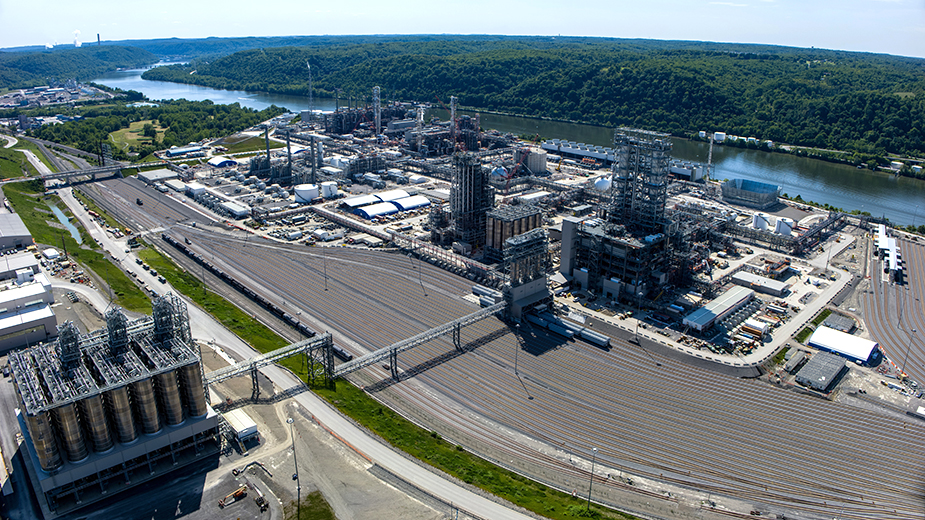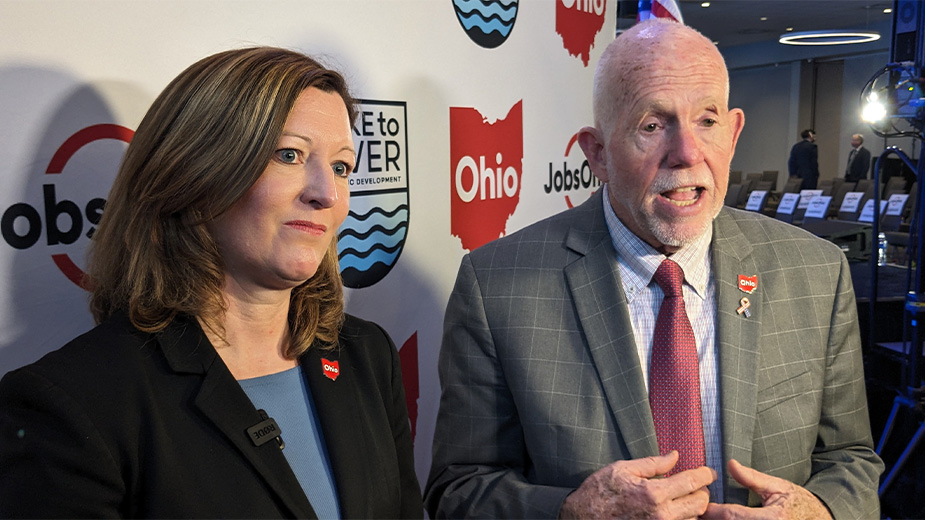Shell’s $6B Cracker Plant Begins Production in Beaver County
MONACA, Pa. – The first major polyethylene petrochemical complex in the northeastern United States is now in operation.
Shell Chemical Appalachia LLC, a subsidiary of Shell plc, said today that it has started production at its Pennsylvania chemical project, Shell Polymers Monaca.
The plant is capable of producing 1.6 million tons, or 3.5 billion pounds, of polyethylene annually.
“Building this world-class facility is a fantastic achievement and one the team can be proud of; it’s a showcase of Shell’s project delivery expertise,” said Huibert Vigeveno, Shell Downstream Director. “With great market access, innovative offers and connected infrastructure, Shell Polymers Monaca is well positioned and ready to serve customers with high-quality, competitive products.”
Construction on the approximately $6 billion facility started in 2017 after Shell made a final investment decision to move forward with the project in June 2016. During the construction phase, the project employed approximately 9,500 tradesmen at the site.
Shell said the complex should ramp up to full production by the second half of 2023. The new operation employs 600 full-time and has led to the creation of thousands more in the public and private sectors that provide support and vendor services, the company noted.
According to a 2020 study conducted by Robert Morris University, Shell’s petrochemical complex is likely to produce long-term economic benefits. The study’s findings estimate that 18 new indirect jobs would be created for each of the 600 full-time positions at the plant. In addition, the study found that the Shell complex in itself could produce between $260 million and $846 million in economic activity annually for Beaver County alone, depending on how many county residents are employed there.
The plant is located within a 700-mile radius of 70% of the U.S. polyethylene market and sits on 384 acres along the Ohio River in Beaver County. The plant would supply customers that manufacture commodity and specialty films, pipe, blow-molded containers and injection-molded components.
Shell’s plant uses ethane feedstock mostly from the Utica and Marcellus shale plays in eastern Ohio and Pennsylvania, the company said. The massive plant essentially “cracks” ethane molecules and converts them into polyethylene pellets used in plastics manufacturing.
Having an ethane feedstock that is in close proximity presents advantages for both production efficiencies and supply chains, the company said. This translates to increased flexibility and access to polyethylene pellets that can be used in a wide variety of products such as common household goods, consumer and food packaging, as well as industrial and utility products.
The start-up of Shell Polymers Monaca represents an important step in growing Shell’s chemicals business as part of its Powering Progress strategy. The company is increasingly participating in value chains closer to end-use customers and using feedstock to deliver more high value products while reducing exposure to commodity chemicals over time.
“I’m proud that in delivering this facility we’ve had a strong and innovative safety focus; invested in the community through employment and education; and helped repair and improve the local environment by remediating a brownfield site,” Vigeveno said. “These commitments are core to Shell’s Powering Progress strategy today and will remain so in the years to come.”
Pictured at top: The plant sits on 800 acres along the Ohio River.
Copyright 2024 The Business Journal, Youngstown, Ohio.



